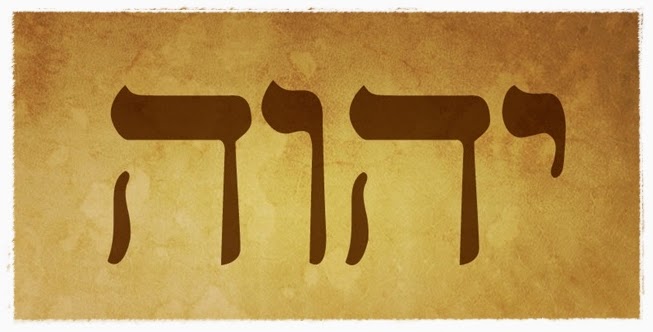Genesis 2:4-7
Session 2: Week 3
Genesis 2:4-7
Last week we looked at these verses, with a particular focus on יהוה Yud-Hey-Vav-Hey/Elohim, the Creator’s personal name. This week we’ll look at this passage from some other angles.
4 This is the account of the heavens and the earth when they were created, in the day that the Lord God made earth and heaven.
In Session 1 we talked about God creating the spiritual realm before the physical realm and there being three heavens. Remember that the Hebrew word for the heavens is plural הַשָּׁמַיִם (Ha Shamayim) – a “plural” word. Heavens is mentioned 127 times in the Bible and heaven 551.
The first heaven is the firmament or expanse. This heaven is the closest to the Earth. (Genesis 1:8)
The second heaven is the space is where the sun, moon and stars are located. (Deuteronomy 4:19) The second heaven is also the place where demonic beings exist. (Ephesians 6:12)
In the area of spiritual warfare, one very controversial issue you’ll come across is whether or not we, as born-again believers, have the power and authority to try and attempt to engage with demons who are in the 2nd heaven, who are in what the Bible calls the “heavenly places.” Scripture teaches that we wrestle with them. Wrestling is a contest between two in which each endeavors to throw the other, and which is decided when the victor is able to hold his opponent down with his hand upon his neck. In the context of our spiritual battles our victory comes by our using the Word of God against our opponent, as modeled to us by Jesus in the wilderness temptation we read about in Matthew 4. This is different to how some people “pray against” these demonic entities in heavenly places.
After researching both sides of this very controversial issue, it is my opinion that unless God Himself directly authorizes and commissions you to engage in this kind of very special, high level type of spiritual warfare, that you stay completely away from this kind of activity. If you try to step into this kind of arena without God’s direct approval and protection, you could open both yourself and possibly the members of your immediate family to major attacks from these higher-ranking demons.
There are also many demons working down here in the first heaven (the spiritual dimension most closely connected with the earthly realm), which gives them direct access to people here on earth. Many call these “earthbound” demons. These are the demons who want to get us to believe lies that cause us to abdicate the Kingdom authority we’ve been given on earth. They also try to attach to people, whether it be to get inside of their bodies, or follow them around like a dark cloud trying to cause as much trouble and mayhem as they possibly can with them.
In the Great Commission command given to us by Jesus right before He left us, He told us to “cast out demons. The way Jesus was wording this command, you can tell that He was referring to demons who are attached to people, not to demons who are operating in 2nd heaven positions. He also does not give us any words or commands to “cast down” demons from the 2nd heaven positions. He’s our model and guide and we only saw Him interacting with demonic entities that were either harassing Him or other people; never ones in the heavenly realms. As such, I believe that for our own safety we should stay completely away from these kind of prayers and spiritual warfare.
The third heaven is the location of God’s throne. According to the Apostle Paul he was caught up to the third heaven. (2 Corinthians 12:2)
Let’s move on in Genesis 2.
5 Now no shrub of the field was yet in the earth, and no plant of the field had yet sprouted, for the Lord God had not sent rain upon the earth, and there was no man to cultivate the ground.
It’s interesting that the Scriptures tell us that plants sprouting (producing fruit) are the result of rain and man’s cultivation of the ground.
How does this correlate to the production of spiritual fruit in our lives?
6 But a mist used to rise from the earth and water the whole surface of the ground.
Vaporous water (mist) came from the earth itself.
Does anyone have thoughts about this? Why would God want us to know this?
Maybe the mist is referring to the Word. Ephesians 5:26 John 1:1-3
This is interesting to me. A mist rose up from the earth to water the ground. There was a connection here to water and earth. When I read this I thought about Jesus’ interaction with Nicodemus that we read about in John 3. In that conversation Jesus shows us that there’s a direct correlation between entering the Kingdom of God (the third heaven) to being born of Spirit and water.
4 Nicodemus *said to Him, “How can a man be born when he is old? He cannot enter a second time into his mother’s womb and be born, can he?” 5 Jesus answered, “Truly, truly, I say to you, unless one is born of water and the Spirit he cannot enter into the kingdom of God. 6 That which is born of the flesh is flesh, and that which is born of the Spirit is spirit. 7 Do not be amazed that I said to you, ‘You must be born again.’
From the beginning of creation, as we saw in Genesis 1:2, God showed us a relationship between His Spirit and water.
…the spirit of God hovered (floated in the air) over the face of the waters.
Now in Genesis 2 we’re shown mist coming from the earth to produce water for the ground.
Maybe God wants us to see the co-existence of two very different substances (mist and earth); one passing through the other – giving us a view into the multi-dimensional aspects of creation.
Or maybe He’s showing us how His Spirit brings life to His Word that then brings life to our mortal flesh. There are a lot of interesting ways to look at this. Let’s move on…
7 Then the Lord God formed man of dust from the ground, and breathed into his nostrils the breath of life; and man became a living being.
Here we see God getting His hands dirty and creating man. This is the only time we’re told He didn’t speak something into creation. That’s interesting. His hands created us from the ground. This is seen other places in scripture that teach us that God is like a potter and we are the clay He is molding and shaping. (Isaiah 64:8; Jeremiah 18:6)
Even those numbers (6+4+8 and 1+8+6) are interesting with regard to this entire topic. The first = 18 which is the number of life in Jewish traditions. The second = 6 which is number of man. Both have huge significance with regard to what that verse is communicating!
After God formed man from the dust, He breathed life into Him. Our lives come from the breath of God. What a humbling and awesome thought.
How does it make you feel to know that your life comes from the breath of God?

OTHER RESOURCES OF INTEREST
BRIDE MINISTRIES PRAYER RESOURCES
CHECK OUT THE FREEDOM FROM PRINCIPALITIES PRAYER
(Disclaimer: Daniel Duval (Bride Ministries) has been called by God to do 2nd heaven warfare, but I still believe most of us should steer clear of this type of spiritual warfare.) I do support and endorse this ministry for other reasons and highly recommend these prayer resources.




